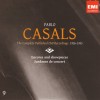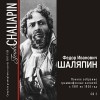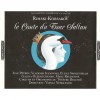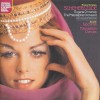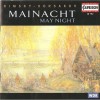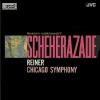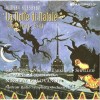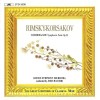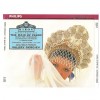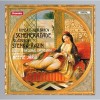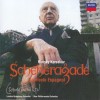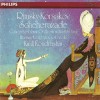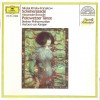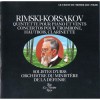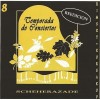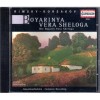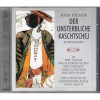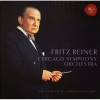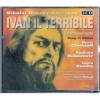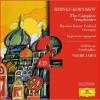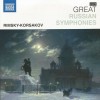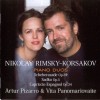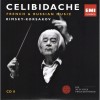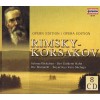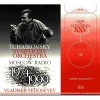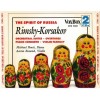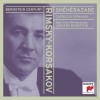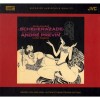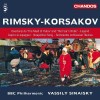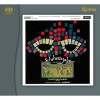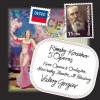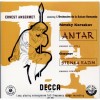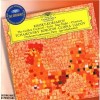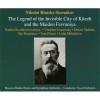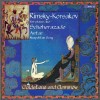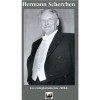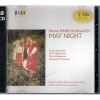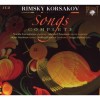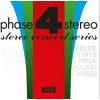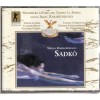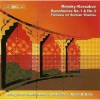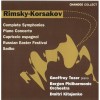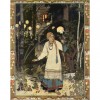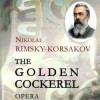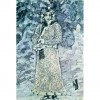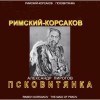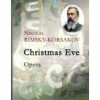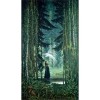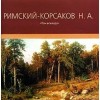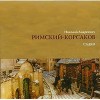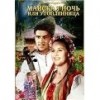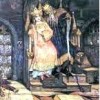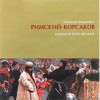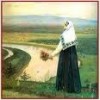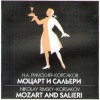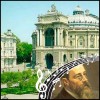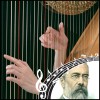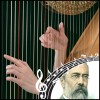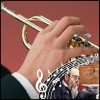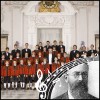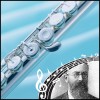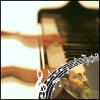Composers
Nikolai Andreevich Rimskii-Korsakov
| Country: | Russia |
| Period: | Russian classics |
The birthplace of the composer is Tikhvin, some 200 km. from St. Petersburg. Rimsky-Korsakov was born in the aristocratic family with rich traditions of naval and military service. He showed his inclinations very early, and at the age of six, he began taking piano lessons from the local teachers and executed talent to compose. Nevertheless, his family insisted that the young man would go to the Imperial Russian Navy, and Nikolai obeyed his parents’ wish. He passed the exams in St. Petersburg in spring 1862.
During his school years Rimsky-Korsakov had piano lessons with the teacher named Ulikh. The teacher noticed his musical talent and introduced him to another teacher Théodore Canillé (Feodor A. Kanille), who introduced Rimsky-Korsakov to piano and basics of composition in 1859. Feodor A. Kanille exposed the young man to new music of Robert Schumann and Mikhail Glinka. At the age of seventeen he stoped taking piano lessons, but in spite of it he was welcomed at Kanille’s house every Sunday. There they discussed music and played duets. In November 1861, Rimsky-Korsakov was introduced to Mily Balakirev, through whom Rimsky-Korsakov came to know Modest Mussorgsky and César Cui; three men were already modestly famous composers, in spite of their young age.
Balakirev encouraged the young man to compose, giving him lessons when he was not on a navy service. He also enriched Rimsky-Korsakov in other fields and areas. The young man showed his teacher the beginning of the symphony, and the latter insisted that he went on with his writing. By 1862 he had already completed 3 movements of this work before sailing on a 3 year cruise. The slow movement was written in England on a stop. Rimsky-Korsakov then mailed this score to his mentor, and the latter enjoyed a successful premiere in St. Petersburg in winter 1865. The first performance was conducted at the Free School of Music, the second performance was directed by Konstantin Lyadov in spring 1866.
In this period Rimsky-Korsakov divided his time between naval duties which occupied only 2 or 3 hours a day and composition, let alone his rich social life which was of great importance for someone of his rank. He started the symphony in B minor, but having established that it resembled the Ninth Symphony of Beethoven he abandoned it. He completed the Overture based on folksong overtures by Balakirev (it was staged in 1866), and initiated the composition of Antar and Sadko. He got acquainted with different musicians, such as Alexander Borodin and Modest Mussorgsky. They spent a lot of time together, criticizing each other or cooperating on creation of new compositions. Rimsky-Korsakov was largely astonished by the music of these authors and valued their opinion among all the others. Rimsky-Korsakov also gained fame as a very talented orchestrator. On Balakirev’s request he orchestrated one of Schubert’s marches in May 1868, and the opening of William Ratcliff, the opera of Cui. He also had a chance to orchestrate the opera Stone Guest on request of Alexander Dargomyzhsky (the man was at that time seriously ill).
In the autumn of 1871, the composer invited Mussorgsky to come and live with him in his new apartment. They agreed to share the piano as both of them were engaged in composition: Mussorgsky played the piano when Rimsky-Korsakov orchestrated or copied something. Mussorgsky devoted noon to the civil service, and this allowed Rimsky-Korsakov to make use of the piano in the afternoon. Rimsky-Korsakov later wrote that both of them accomplished a great deal as they composed a lot and exchanged plans and ideas. Rimsky-Korsakov finished and orchestrated the Maid of Pskov, while his roommate wrote and orchestrated the act from Boris Godunov as well as the scene from Near Kromy.
In 1871 Rimsky-Korsakov was offered a post of Professor at the St. Petersburg Conservatory, and leader in the Orchestra Class of Mikhaíl Azanchevsky, who wanted to introduce fresh blood to his educational establishment and so classical subjects are introduced in new light. Balakirev, who was formerly opposed to academicism, encouraged the young man to take the post. Rimsky-Korsakov knew of his technical drawbacks, and converted himself to a perfect student attempting to be at least a step ahead of the students he was supposed to teach. He took a 3-year pause from the composition and was engulfed in home studying, pondering through the text books, following the regimen of exercises, fugues, cappella choruses and chorales. He turned into a fervent and highly professional teacher who passionately believed in a qualified academic training. Rimsky-Korsakov was even compelled to make a revision of his every composition he had done before 1874. Even such highly acclaimed compositions as Sadko and Antar were not an exception. Till the rest of his life would remain his ardent wish to make his every earlier work perfect.
The professorship brought financial security to Rimsky-Korsakov and he decided to make a proposal to Nadezhda Purgold in 1871. This was a chance for Rimsky-Korsakov to settle and start a new life of a married man. They married in summer 1872; his friend Mussorgsky was a best man at the wedding. The couple had seven children and lived a comfortable living. His son Andrei would later become a reputed musicologist (and his wife Yuliya Veysberg a composer) and edit a study of the life and work of his father.
Nadezhda was the best musical critic as well as partner for her husband. Their realtions resembled those which were between Clara Schumann and her spouse Robert. Nadezhda was a capable, strong-willed and beautiful woman, and she was much better trained before their marriage. This allowed her to express her critical opinion of his works and influence her husband in a way that Stasov and Balakirev wondered whether a woman was not leading Rimsky-Korsakov astray from the musical preferences of his tutors. She was the author of the second variation of Antar in 1875 (the arrangement was edited by Bessel.) Before her marriage with Rimsky-Korsakov she arranged the original (1869—70) variant of Antar made for piano 4 hands.)
Rimsky-Korsakov kept his naval duties even during his service at the conservatory. In early 1873, the situation changed. In spring he was offered the position of Inspector of Naval Bands. Among his duties was the inspection of Russian naval bands, supervision of naval bandmasters, the appointment of new musicians, supervision of the instrument quality as well as repertoire of the band. He was also in charge of music students holding navy fellowship at the conservatory. Rimsky-Korsakov agreed to make the study program for such students and to be an intermediary between the conservatory and the navy. He was later promoted to a Collegiate Assessor (which was in fact the civilian rank.) In the long run Rimsky-Korsakov was listed among the navy officials of the Navy Department. If he hadn’t agreed to take up this post he would not be kept on a navy payroll.
Rimsky-Korsakov zealously applied himself on the duties, at the same time obsessed with the idea to get acquainted with playing techniques and construction of the instruments of the orchestra. He was preoccupied with the subject, purchasing and investigating the character of each orchestral instrument. His studies urged him to make a book on orchestration techniques. Due to his privileges he was free to exercise and enhance his knowledge, making compositions for the navy bands as well as arranging the compositions of other artists.
The post of the Inspector of Bands was abolished by the Imperial Order in 1884. Since that time his state services were narrowed to the government service at the Court Chapel. He worked there under Balakirev, occupying the post of a deputy. Due to the changes in his life he had an opportunity to familiarize himself with church music. He even contrived to write the textbook on harmony especially for his students, having found the thematic book by Tchaikovsky unsatisfactory. Rimsky-Korsakov remained at the chapel till 1894.
Rimsky-Korsakov’s studies as well as the changes of his views upon music education in general made him a scorn of other musicians. The fellow nationalists insisted that he was neglecting his national heritage to write sonatas and fugues. After his attempt to concentrate the most of counterpoint in one work (the Third Symphony), he concentrated mainly on chamber works adhering strictly to classical patterns and models. Among the compositions written in this key there were the string sextet, a quintet for clarinet, flute, piano, horn and bassoon. One way or another, his fellow nationalists remained indifferent and unenthusiastic to his music endeavors. The Third Symphony received a moderately cool welcome; the quartet was almost ignored by the critics. Rimsky-Korsakov would write that according to public reaction he was considered to be a downward path in music. Anton Rubinstein, the arch-nemesis of nationalists' movement was among the worst who derogated the role of Rimsky-Korsakov as a Russian composer.
Thanks to two other projects Rimsky-Korsakov could focus on less academic music matters. The first was Russian folk songs, which he came to like long before 1874, but then his interest was renewed. His two collections of songs influenced him greatly, both as a composer and as a person, working the therapeutic effect upon Rimsky-Korsakov. What is more, in cooperation with Anatoly Lyadov and Balakirev he edited orchestral scores of Mikhail Glinka.
In 1877 the composer was preoccupied by the idea to stage May Night, a short story by Nikolai Gogol. This story had long been his favorite, and he was encouraged by his wife to write the opera on the basis of this story (they read this story on their betrothal day.) Rimsky-Korsakov had long cherished the ideas of its performance, but only now did he had chance to occupy himself fully with this work. By winter the story began taking his full attention; in February the composer started to work on it in earnest. By November, his opera was created.
The composer wrote later that the opera May Night was very important because, in spite his profound employment of counterpoint he ‘left out the irons of counterpoint here’. This work was written in a folk-like idiom, where singing phrase and melody replaced inexpressive recitative, and worked in union with the light operatic orchestration, what resembled the style of another Russian composer- Glinka. The Snow Maiden came with rapidity and an ease not known before. Nevertheless, his composing abilities were paralyzed in the period between 1881 and 1888. He was occupied with the editing of Mussorgsky's compositions and completing Prince Igor by Borodin.
The composer became acquainted with a music patron and capitalist Mitrofan Belyayev at Les Vendredis (or quartet Fridays) introduced by Belyayev and held weekly at his house. Belyayev took interest in a young but promising teenage composer Alexander Glazunov. He rented a hall and payed for the orchestra to play the First Symphony by Glazunov in addition to another suite he had just introduced. This concert as well other projects supported by Belyayev gave the composer the idea to arrange annual concerts in support of Russian composers, the idea to which the music patron was amenable. In the long run Rimsky-Korsakov shared conducting duties during the season of Russian Symphony Concerts initiated in 1886.
He brought the revision of Night on Bald Mountain by Mussorgsky to the end. This composition was conducted by Rimsky-Korsakov at the opening of the season. These concerts also urged him to write Capriccio espagnol, he Russian Easter Overture and Scheherazade, thus coaxing the composer out of the creative drought. According to Rimsky-Korsakov, these compositions display a substantial falling off in the implementation of contrapuntal methods … due to the strong virtuoso evolvement of figuration which maintains the technical interest in his works.
The climactic occasion in the creative life of the composer was the performances of ‘Richard Wagner Theater’ under the guidance of Angelo Neumann in St. Petersburg. The party introduced to the audience 4 cycles of Wagner’s Der Ring des Nibelungen in spring 1889. Rimsky-Korsakov was very much impressed by the conduction of the composition by Karl Muck. Glazunov and Rimsky-Korsakov would attend the rehearsals of the orchestra and wonder over Wagner’s talent to orchestrate. For the rest of his life Rimsky-Korsakov would devote himself exclusively to the composition of operas. Wagner's orchestration influenced the Rimsky-Korsakov's use of the orchestra. This influence was to be felt in his next compositions, for example the arrangement of a polonaise from Boris Godunov introduced at the concert in 1889.
In 1892 the composer suffered from depression and creative drought, engineered by physical symptoms- blood pressure, confusion, unpleasant obsessions and even memory loss. The diagnosis was put as neurasthenia. The depression might as well had been caused by the grave illness of his beloved wife and his son’s sufferings from diphtheria, his mother’s death and the death of one of his children, as well as his daughter’s prolonged illness which brought her to death. The composer decided to abandon his post as a deputy at the Royal Chapel and resign from the Russian Symphony Concerts. What is more, he thought over to give up composition for ever. Rimsky-Korsakov would close his account with the past by after latest revision of Sadko, a music tableau and The Maid of Pskov, his famous opera. Thus he had revised almost all of his grand compositions written prior to May Night leaving none of them in their original form.
The death of Pyotr Ilyich Tchaikovsky ironically urged the composer to restore his composing attempts and create an opera for the Imperial Theaters. Rimsky-Korsakov enjoyed this two-fold opportunity and composed an opera based on the short story by Nikolai Gogol ‘Christmas Eve’. Tchaikovsky himself wrote Vakula the Smith on the basis of this story. Christmas Eve written by Rimsky-Korsakov was a major success and it helped the composer to restore his creative efforts. The composer started and quitted another piece of the treatise on the orchestration. Before his death the composer made one more creative attempt.
The composer nearly finished his work on it before he died (Maximilian Steinberg, his son-in-law brought the task to an end in 1912), making more than three hundred examples from the work. Rimsky-Korsakov introduced a scientific treatment of orchestral work implemented in a new standard of this kind of texts.
In 1905, some 100 students were expelled from the institution for their participation in the events of the February Revolution. The composer expressed his support to the students and was banned from professorship. As a result of the student performance of Kaschei the Immortal not the scheduled concert but the political demonstration was initiated, before the police ban of his works followed. This resulted in outrage of music lovers in Russia and abroad; intellectuals and liberals forwarded a torrent of supportive and sympathetic letters to the residence of Rimsky-Korsakov. The resignation of Lyadov and Glazunov, as well as some other faculty members followed the ban of the composer. By December Rimsky-Korsakov was reinstated, but his other opera The Golden Cockerel provoked political controversy from defenders of Russian monarchy. It implemented criticism on Russian imperialism, monarchy as well as the war against Japan, what gave little chance for its staging. The premiere was conducted only in 1909, after the death of the composer. Even in 1909 its adapted version was introduced.
From 1890 on, Rimsky-Korsakov would suffer from angina. This was the initial cause of his sufferings which had worn him down. The February Revolution and its outcome accelerated the progress of this ailment. Since December 1907, the illness became unbearable, preventing all the work. In 1908, Rimsky-Korsakov died in Lyubensk, his body was later transferred to the Alexander Nevsky Monastery which is situated in St. Petersburg.
Recently Added
| Country: | Russia |
| Period: | Russian classics |
Biography
The birthplace of the composer is Tikhvin, some 200 km. from St. Petersburg. Rimsky-Korsakov was born in the aristocratic family with rich traditions of naval and military service. He showed his inclinations very early, and at the age of six, he began taking piano lessons from the local teachers and executed talent to compose. Nevertheless, his family insisted that the young man would go to the Imperial Russian Navy, and Nikolai obeyed his parents’ wish. He passed the exams in St. Petersburg in spring 1862.
During his school years Rimsky-Korsakov had piano lessons with the teacher named Ulikh. The teacher noticed his musical talent and introduced him to another teacher Théodore Canillé (Feodor A. Kanille), who introduced Rimsky-Korsakov to piano and basics of composition in 1859. Feodor A. Kanille exposed the young man to new music of Robert Schumann and Mikhail Glinka. At the age of seventeen he stoped taking piano lessons, but in spite of it he was welcomed at Kanille’s house every Sunday. There they discussed music and played duets. In November 1861, Rimsky-Korsakov was introduced to Mily Balakirev, through whom Rimsky-Korsakov came to know Modest Mussorgsky and César Cui; three men were already modestly famous composers, in spite of their young age.
Balakirev encouraged the young man to compose, giving him lessons when he was not on a navy service. He also enriched Rimsky-Korsakov in other fields and areas. The young man showed his teacher the beginning of the symphony, and the latter insisted that he went on with his writing. By 1862 he had already completed 3 movements of this work before sailing on a 3 year cruise. The slow movement was written in England on a stop. Rimsky-Korsakov then mailed this score to his mentor, and the latter enjoyed a successful premiere in St. Petersburg in winter 1865. The first performance was conducted at the Free School of Music, the second performance was directed by Konstantin Lyadov in spring 1866.
In this period Rimsky-Korsakov divided his time between naval duties which occupied only 2 or 3 hours a day and composition, let alone his rich social life which was of great importance for someone of his rank. He started the symphony in B minor, but having established that it resembled the Ninth Symphony of Beethoven he abandoned it. He completed the Overture based on folksong overtures by Balakirev (it was staged in 1866), and initiated the composition of Antar and Sadko. He got acquainted with different musicians, such as Alexander Borodin and Modest Mussorgsky. They spent a lot of time together, criticizing each other or cooperating on creation of new compositions. Rimsky-Korsakov was largely astonished by the music of these authors and valued their opinion among all the others. Rimsky-Korsakov also gained fame as a very talented orchestrator. On Balakirev’s request he orchestrated one of Schubert’s marches in May 1868, and the opening of William Ratcliff, the opera of Cui. He also had a chance to orchestrate the opera Stone Guest on request of Alexander Dargomyzhsky (the man was at that time seriously ill).
In the autumn of 1871, the composer invited Mussorgsky to come and live with him in his new apartment. They agreed to share the piano as both of them were engaged in composition: Mussorgsky played the piano when Rimsky-Korsakov orchestrated or copied something. Mussorgsky devoted noon to the civil service, and this allowed Rimsky-Korsakov to make use of the piano in the afternoon. Rimsky-Korsakov later wrote that both of them accomplished a great deal as they composed a lot and exchanged plans and ideas. Rimsky-Korsakov finished and orchestrated the Maid of Pskov, while his roommate wrote and orchestrated the act from Boris Godunov as well as the scene from Near Kromy.
In 1871 Rimsky-Korsakov was offered a post of Professor at the St. Petersburg Conservatory, and leader in the Orchestra Class of Mikhaíl Azanchevsky, who wanted to introduce fresh blood to his educational establishment and so classical subjects are introduced in new light. Balakirev, who was formerly opposed to academicism, encouraged the young man to take the post. Rimsky-Korsakov knew of his technical drawbacks, and converted himself to a perfect student attempting to be at least a step ahead of the students he was supposed to teach. He took a 3-year pause from the composition and was engulfed in home studying, pondering through the text books, following the regimen of exercises, fugues, cappella choruses and chorales. He turned into a fervent and highly professional teacher who passionately believed in a qualified academic training. Rimsky-Korsakov was even compelled to make a revision of his every composition he had done before 1874. Even such highly acclaimed compositions as Sadko and Antar were not an exception. Till the rest of his life would remain his ardent wish to make his every earlier work perfect.
The professorship brought financial security to Rimsky-Korsakov and he decided to make a proposal to Nadezhda Purgold in 1871. This was a chance for Rimsky-Korsakov to settle and start a new life of a married man. They married in summer 1872; his friend Mussorgsky was a best man at the wedding. The couple had seven children and lived a comfortable living. His son Andrei would later become a reputed musicologist (and his wife Yuliya Veysberg a composer) and edit a study of the life and work of his father.
Nadezhda was the best musical critic as well as partner for her husband. Their realtions resembled those which were between Clara Schumann and her spouse Robert. Nadezhda was a capable, strong-willed and beautiful woman, and she was much better trained before their marriage. This allowed her to express her critical opinion of his works and influence her husband in a way that Stasov and Balakirev wondered whether a woman was not leading Rimsky-Korsakov astray from the musical preferences of his tutors. She was the author of the second variation of Antar in 1875 (the arrangement was edited by Bessel.) Before her marriage with Rimsky-Korsakov she arranged the original (1869—70) variant of Antar made for piano 4 hands.)
Rimsky-Korsakov kept his naval duties even during his service at the conservatory. In early 1873, the situation changed. In spring he was offered the position of Inspector of Naval Bands. Among his duties was the inspection of Russian naval bands, supervision of naval bandmasters, the appointment of new musicians, supervision of the instrument quality as well as repertoire of the band. He was also in charge of music students holding navy fellowship at the conservatory. Rimsky-Korsakov agreed to make the study program for such students and to be an intermediary between the conservatory and the navy. He was later promoted to a Collegiate Assessor (which was in fact the civilian rank.) In the long run Rimsky-Korsakov was listed among the navy officials of the Navy Department. If he hadn’t agreed to take up this post he would not be kept on a navy payroll.
Rimsky-Korsakov zealously applied himself on the duties, at the same time obsessed with the idea to get acquainted with playing techniques and construction of the instruments of the orchestra. He was preoccupied with the subject, purchasing and investigating the character of each orchestral instrument. His studies urged him to make a book on orchestration techniques. Due to his privileges he was free to exercise and enhance his knowledge, making compositions for the navy bands as well as arranging the compositions of other artists.
The post of the Inspector of Bands was abolished by the Imperial Order in 1884. Since that time his state services were narrowed to the government service at the Court Chapel. He worked there under Balakirev, occupying the post of a deputy. Due to the changes in his life he had an opportunity to familiarize himself with church music. He even contrived to write the textbook on harmony especially for his students, having found the thematic book by Tchaikovsky unsatisfactory. Rimsky-Korsakov remained at the chapel till 1894.
Rimsky-Korsakov’s studies as well as the changes of his views upon music education in general made him a scorn of other musicians. The fellow nationalists insisted that he was neglecting his national heritage to write sonatas and fugues. After his attempt to concentrate the most of counterpoint in one work (the Third Symphony), he concentrated mainly on chamber works adhering strictly to classical patterns and models. Among the compositions written in this key there were the string sextet, a quintet for clarinet, flute, piano, horn and bassoon. One way or another, his fellow nationalists remained indifferent and unenthusiastic to his music endeavors. The Third Symphony received a moderately cool welcome; the quartet was almost ignored by the critics. Rimsky-Korsakov would write that according to public reaction he was considered to be a downward path in music. Anton Rubinstein, the arch-nemesis of nationalists' movement was among the worst who derogated the role of Rimsky-Korsakov as a Russian composer.
Thanks to two other projects Rimsky-Korsakov could focus on less academic music matters. The first was Russian folk songs, which he came to like long before 1874, but then his interest was renewed. His two collections of songs influenced him greatly, both as a composer and as a person, working the therapeutic effect upon Rimsky-Korsakov. What is more, in cooperation with Anatoly Lyadov and Balakirev he edited orchestral scores of Mikhail Glinka.
In 1877 the composer was preoccupied by the idea to stage May Night, a short story by Nikolai Gogol. This story had long been his favorite, and he was encouraged by his wife to write the opera on the basis of this story (they read this story on their betrothal day.) Rimsky-Korsakov had long cherished the ideas of its performance, but only now did he had chance to occupy himself fully with this work. By winter the story began taking his full attention; in February the composer started to work on it in earnest. By November, his opera was created.
The composer wrote later that the opera May Night was very important because, in spite his profound employment of counterpoint he ‘left out the irons of counterpoint here’. This work was written in a folk-like idiom, where singing phrase and melody replaced inexpressive recitative, and worked in union with the light operatic orchestration, what resembled the style of another Russian composer- Glinka. The Snow Maiden came with rapidity and an ease not known before. Nevertheless, his composing abilities were paralyzed in the period between 1881 and 1888. He was occupied with the editing of Mussorgsky's compositions and completing Prince Igor by Borodin.
The composer became acquainted with a music patron and capitalist Mitrofan Belyayev at Les Vendredis (or quartet Fridays) introduced by Belyayev and held weekly at his house. Belyayev took interest in a young but promising teenage composer Alexander Glazunov. He rented a hall and payed for the orchestra to play the First Symphony by Glazunov in addition to another suite he had just introduced. This concert as well other projects supported by Belyayev gave the composer the idea to arrange annual concerts in support of Russian composers, the idea to which the music patron was amenable. In the long run Rimsky-Korsakov shared conducting duties during the season of Russian Symphony Concerts initiated in 1886.
He brought the revision of Night on Bald Mountain by Mussorgsky to the end. This composition was conducted by Rimsky-Korsakov at the opening of the season. These concerts also urged him to write Capriccio espagnol, he Russian Easter Overture and Scheherazade, thus coaxing the composer out of the creative drought. According to Rimsky-Korsakov, these compositions display a substantial falling off in the implementation of contrapuntal methods … due to the strong virtuoso evolvement of figuration which maintains the technical interest in his works.
The climactic occasion in the creative life of the composer was the performances of ‘Richard Wagner Theater’ under the guidance of Angelo Neumann in St. Petersburg. The party introduced to the audience 4 cycles of Wagner’s Der Ring des Nibelungen in spring 1889. Rimsky-Korsakov was very much impressed by the conduction of the composition by Karl Muck. Glazunov and Rimsky-Korsakov would attend the rehearsals of the orchestra and wonder over Wagner’s talent to orchestrate. For the rest of his life Rimsky-Korsakov would devote himself exclusively to the composition of operas. Wagner's orchestration influenced the Rimsky-Korsakov's use of the orchestra. This influence was to be felt in his next compositions, for example the arrangement of a polonaise from Boris Godunov introduced at the concert in 1889.
In 1892 the composer suffered from depression and creative drought, engineered by physical symptoms- blood pressure, confusion, unpleasant obsessions and even memory loss. The diagnosis was put as neurasthenia. The depression might as well had been caused by the grave illness of his beloved wife and his son’s sufferings from diphtheria, his mother’s death and the death of one of his children, as well as his daughter’s prolonged illness which brought her to death. The composer decided to abandon his post as a deputy at the Royal Chapel and resign from the Russian Symphony Concerts. What is more, he thought over to give up composition for ever. Rimsky-Korsakov would close his account with the past by after latest revision of Sadko, a music tableau and The Maid of Pskov, his famous opera. Thus he had revised almost all of his grand compositions written prior to May Night leaving none of them in their original form.
The death of Pyotr Ilyich Tchaikovsky ironically urged the composer to restore his composing attempts and create an opera for the Imperial Theaters. Rimsky-Korsakov enjoyed this two-fold opportunity and composed an opera based on the short story by Nikolai Gogol ‘Christmas Eve’. Tchaikovsky himself wrote Vakula the Smith on the basis of this story. Christmas Eve written by Rimsky-Korsakov was a major success and it helped the composer to restore his creative efforts. The composer started and quitted another piece of the treatise on the orchestration. Before his death the composer made one more creative attempt.
The composer nearly finished his work on it before he died (Maximilian Steinberg, his son-in-law brought the task to an end in 1912), making more than three hundred examples from the work. Rimsky-Korsakov introduced a scientific treatment of orchestral work implemented in a new standard of this kind of texts.
In 1905, some 100 students were expelled from the institution for their participation in the events of the February Revolution. The composer expressed his support to the students and was banned from professorship. As a result of the student performance of Kaschei the Immortal not the scheduled concert but the political demonstration was initiated, before the police ban of his works followed. This resulted in outrage of music lovers in Russia and abroad; intellectuals and liberals forwarded a torrent of supportive and sympathetic letters to the residence of Rimsky-Korsakov. The resignation of Lyadov and Glazunov, as well as some other faculty members followed the ban of the composer. By December Rimsky-Korsakov was reinstated, but his other opera The Golden Cockerel provoked political controversy from defenders of Russian monarchy. It implemented criticism on Russian imperialism, monarchy as well as the war against Japan, what gave little chance for its staging. The premiere was conducted only in 1909, after the death of the composer. Even in 1909 its adapted version was introduced.
From 1890 on, Rimsky-Korsakov would suffer from angina. This was the initial cause of his sufferings which had worn him down. The February Revolution and its outcome accelerated the progress of this ailment. Since December 1907, the illness became unbearable, preventing all the work. In 1908, Rimsky-Korsakov died in Lyubensk, his body was later transferred to the Alexander Nevsky Monastery which is situated in St. Petersburg.
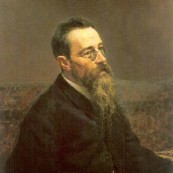



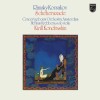
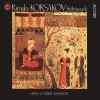
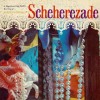
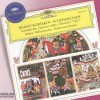
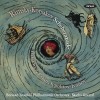
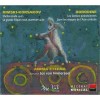
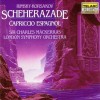
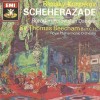
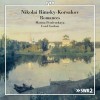


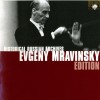
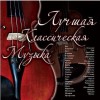
![Top 100 der Klassik [CD 2 of 5]](http://static.classicalm.com/repository/collection-cover/small/1365-img1372592354874210.jpg)
![Deutsche Grammophon Classic Gold [CD 3 of 3]](http://static.classicalm.com/repository/collection-cover/small/1316-img1361384204300956.jpg)
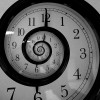

![The Top 100 Masterpieces of Classical Music 1685-1928 [CD10of10]](http://static.classicalm.com/repository/collection-cover/small/1362-img1372449071864441.jpg)
![The Top 100 Masterpieces of Classical Music 1685-1928 [CD9of10]](http://static.classicalm.com/repository/collection-cover/small/1361-img1372448419453391.jpg)
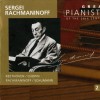
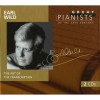
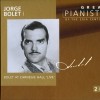
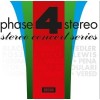
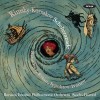
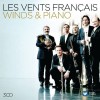
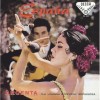
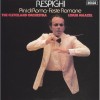

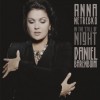
![Pablo Casals - The Complete Published EMI Recordings (1926 - 1955) [CD9of9]](http://static.classicalm.com/repository/disk-cover/small/3594-img1404566163886690.jpg)
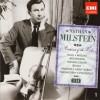
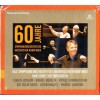
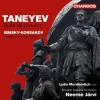
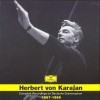
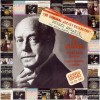


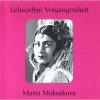
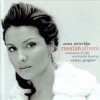
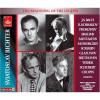
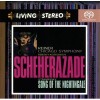
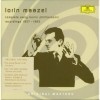
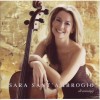
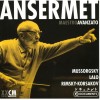
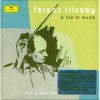
![Rita Streich - The Viennese Nightingale [CD 4 of 8]](http://static.classicalm.com/repository/disk-cover/small/3037-img1372357313822809.jpg)
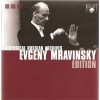
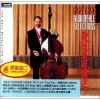
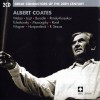
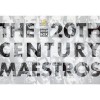
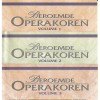
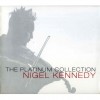
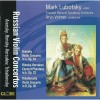
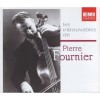
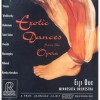
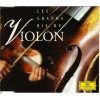
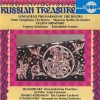
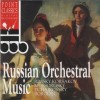
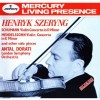
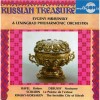
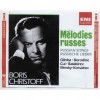
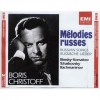
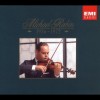
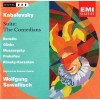

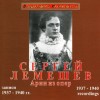
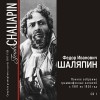
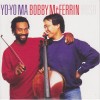
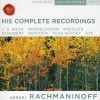
![Sviatoslav Richter - The Beginning of the Legend [4 CD]](http://static.classicalm.com/repository/disk-cover/small/823-img1315991321531276.jpg)
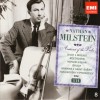
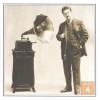
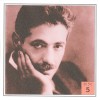
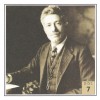
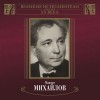
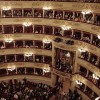

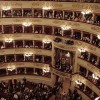
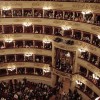
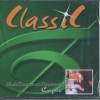
![The Heifetz Collection, Volume 19 [2 CD]](http://static.classicalm.com/repository/disk-cover/small/947-img1317413695600051.jpg)
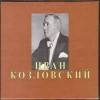
![The Heifetz Collection, Volume 2 [3 CD]](http://static.classicalm.com/repository/disk-cover/small/717-img1315129517717299.jpg)
![The Heifetz Collection, Volume 6 [2 CD]](http://static.classicalm.com/repository/disk-cover/small/725-img1315427995644122.jpg)
